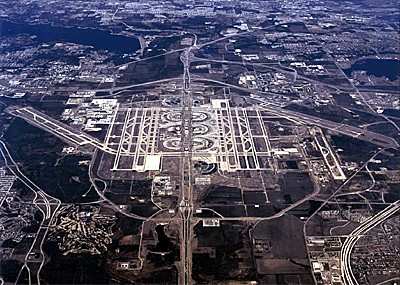Sun, Jan 15, 2023
Do Unto Others …
The Airline Passenger Experience Association (APEX)—a global non-profit dedicated to advancing the air-travel experience—has demanded the U.S. federal government compensate airline passengers after a Federal Aviation Administration (FAA) database failure grounded the entirety of scheduled flights within the U.S. National Airspace System for nearly three-hours on Wednesday, 11 January 2023.

The failure occasioned over ten-thousand flight delays and north of 1,300 flight cancellations—the whole of which adversely impacted millions of airline passengers and wrought more than $200-million in estimated economic damage.
APEX subsequently called upon U.S. Department of Transportation (DOT) Secretary Pete Buttigieg to hold the federal government to the same level of accountability he himself had demanded of airlines only one day prior to the FAA database failure.
On Tuesday, 10 January 2023, Buttigieg stated on Twitter, "We will enforce their [airlines’] responsibility to refund flight tickets and reimburse for alternate & ground transport, baggage costs, meals and hotels."

A program by which the U.S. federal government were held financially responsible for flight delays and cancellations engendered by failures of its agencies could be funded by, and passenger reimbursements drawn from, the billions of tax dollars air-travelers pay annually.
APEX CEO Dr. Joe Leader set forth: "The US government needs to rise to the same level of accountability to passengers as the airlines that have been paying hundreds of millions of dollars to protect customers for non-weather-related delays and cancellations. Air traffic control failures happen too often. This national failure highlights a need for the US government to redirect airline taxes to practice what they preach: protect customers when it's your fault within your control."

Citing the calamitous aftermath of the relatively minor, 11 January FAA database failure, APEX stressed the need for modernization of the nation’s Air Traffic Control system. U.S. government research has indicated that a Next Generation Air Transportation System (NextGen)—in addition to further protecting passengers from technical or otherwise manmade failures—could reduce airline fuel consumption by up to five-percent through more efficient traffic routing and management. Such and upgrade could also save billions of dollar paid annually by airlines and their passengers for fuel, equipment wear, and aircraft repositioning.
More News
From 2014 (YouTube Version): One Of The Airshow World's Pre-Eminent Formation Teams Chats About The State Of The Industry At EAA AirVenture 2014, ANN News Editor Tom Patton gets th>[...]
Tactical Air Navigation (TACAN) An ultra-high frequency electronic rho-theta air navigation aid which provides suitably equipped aircraft a continuous indication of bearing and dis>[...]
Aero Linx: Doobert Hi, we're Chris & Rachael Roy, founders and owners of Doobert. Chris is a technology guy in his “day” job and used his experience to create Doobe>[...]
The Airplane Was Spinning In A Nose-Down Attitude Before It Impacted Terrain On June 20, 2025, at 0900 eastern daylight time, a Pitts Aerobatics S-2B, N79AV, was destroyed when it >[...]
Also: United Elite Sues, Newark ATC Transitions, Discovery Moves?, Textron @ KOSH The Commemorative Air Force Airbase Arizona is taking its “Flying Legends of Victory Tour&rd>[...]
 Classic Aero-TV: Up Close And Personal - The Aeroshell Aerobatic Team at Oshkosh
Classic Aero-TV: Up Close And Personal - The Aeroshell Aerobatic Team at Oshkosh ANN's Daily Aero-Term (07.13.25): Tactical Air Navigation (TACAN)
ANN's Daily Aero-Term (07.13.25): Tactical Air Navigation (TACAN) ANN's Daily Aero-Linx (07.13.25)
ANN's Daily Aero-Linx (07.13.25) NTSB Prelim: Pitts S2
NTSB Prelim: Pitts S2 Airborne 07.09.25: B-17 Sentimental Journey, Airport Scandal, NORAD Intercepts
Airborne 07.09.25: B-17 Sentimental Journey, Airport Scandal, NORAD Intercepts





